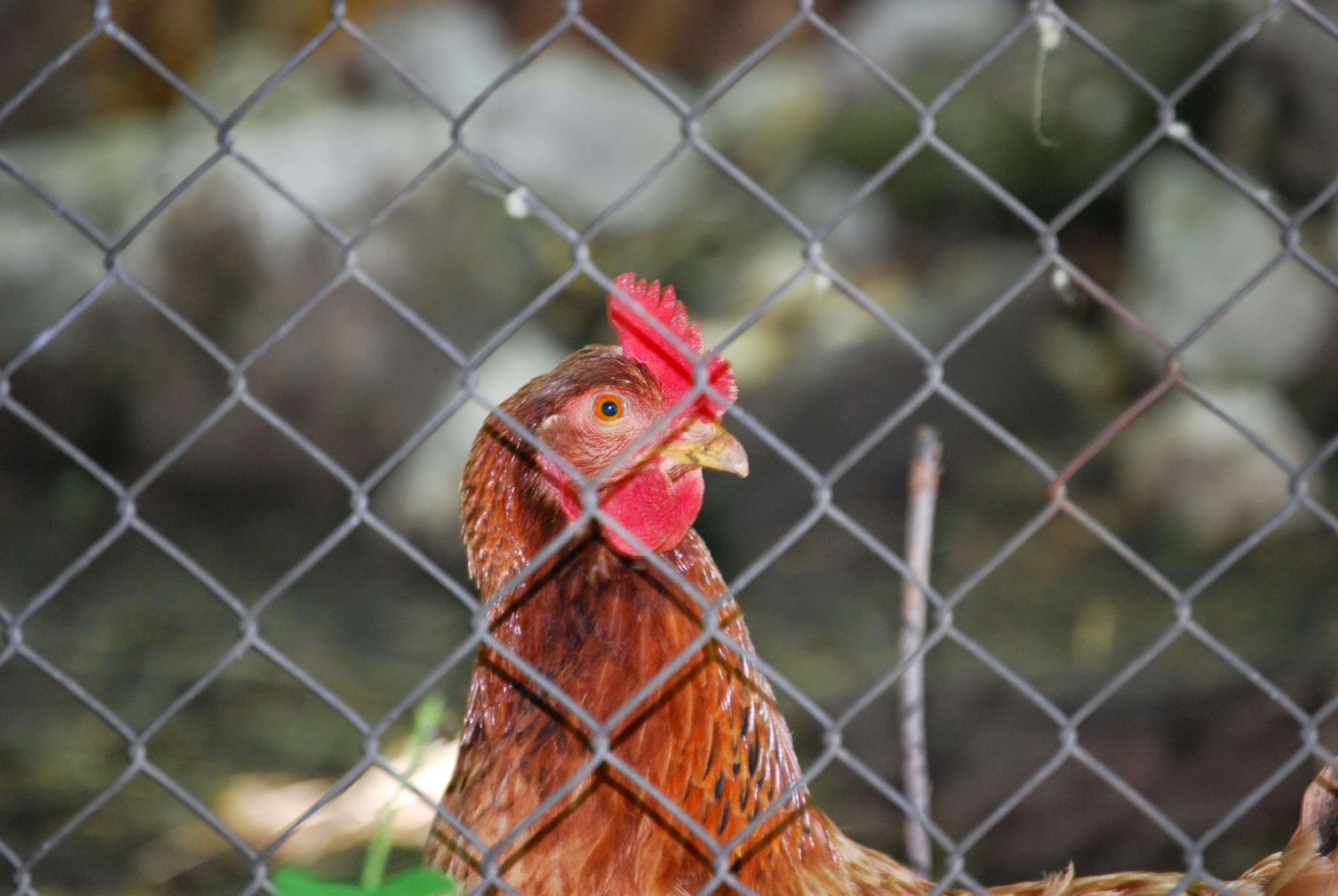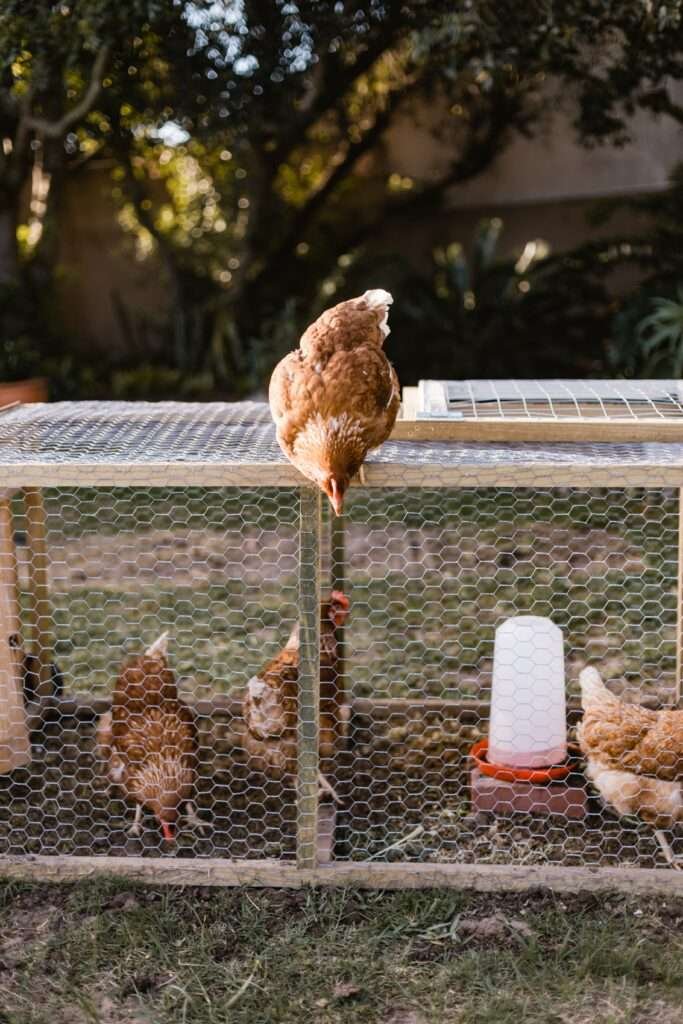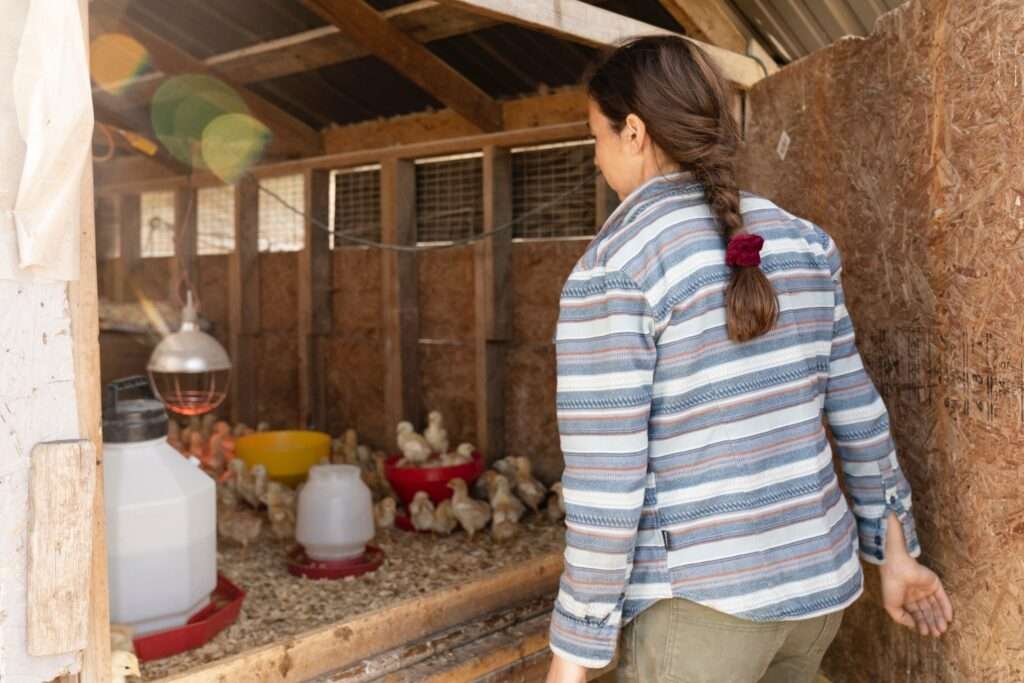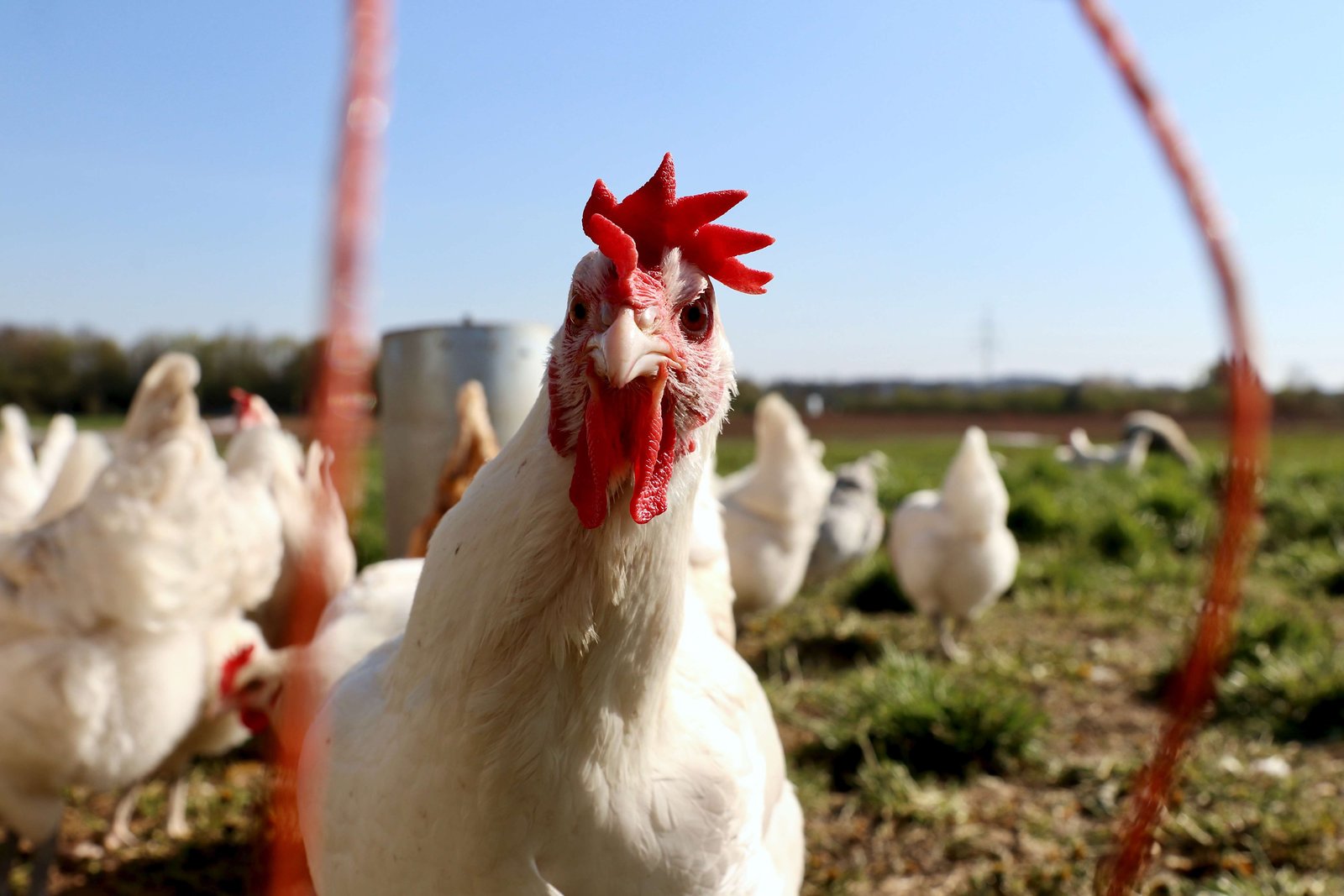Keeping chickens can be a rewarding and enjoyable experience, but like any living beings, chickens can experience stress. Unlike some animals, chickens are adept at hiding their stress, making it crucial for chicken keepers to understand the various factors that cause stress and how to spot the signs. In this article, we will delve into the nature of stress in chickens, explore its potential causes, and learn how to identify stressed chickens. Additionally, we will discuss effective strategies to prevent and alleviate stress, ensuring a healthy and content flock.
Understanding the Nature of Stress in Chickens:
Stress, in the context of chickens, refers to the physiological and behavioral responses to environmental or social challenges. Chickens are sensitive creatures, and stress can significantly impact their overall well-being and productivity. When chickens experience stress, their bodies release stress hormones, leading to changes in behavior and physical health.
Stress in chickens can arise from various factors, including their living conditions, social dynamics, nutrition, predator threats, and health issues. Being prey animals, chickens are naturally wired to hide signs of weakness or distress, which makes it challenging for chicken keepers to recognize when their birds are under stress.
Causes of Stress in Chickens:
Environmental Factors:
- Inadequate Living Space and Overcrowding: A cramped and crowded coop can lead to increased competition for resources and space, causing stress among the flock members.
- Temperature and Weather Changes: Extreme temperatures or sudden weather changes can be stressful for chickens, affecting their comfort and well-being.
- Poor Lighting Conditions: Inadequate or irregular lighting patterns can disrupt the chickens’ internal clock, leading to stress and behavioral changes.
- Unsanitary Nesting Areas and Roosts: Dirty and unsanitary conditions in nesting areas and roosting spots can make chickens uncomfortable and vulnerable to health issues.
Social Factors:
- Introducing New Chickens or Removing Flock Members: The addition of new chickens or the removal of established flock members can disrupt the pecking order, causing stress and social tension.
- Pecking Order and Aggressive Behavior: Chickens establish a social hierarchy through pecking order. Aggressive behavior among flock members can lead to stress, especially for the lower-ranked individuals.
- Loneliness and Isolation: Chickens are social animals and can experience stress if isolated from the flock or human interaction.
Predators and Fear-Inducing Situations:
- Presence of Predators and Perceived Threats: The presence of predators, even if not physically present, can create stress and fear among chickens.
- Loud Noises and Sudden Disturbances: Sudden loud noises, such as fireworks or heavy machinery, can startle chickens and induce stress.
Nutritional Factors:
- Inadequate or Imbalanced Diet: A diet lacking essential nutrients or imbalanced in its composition can lead to stress and health problems in chickens.
- Sudden Changes in Feed or Water Availability: Abrupt changes in the availability of food or water can cause stress and disrupt normal feeding behaviors.
Health Issues:
- Underlying Illnesses and Infections: Illnesses or infections can cause stress and weaken the chicken’s immune system, making them more susceptible to diseases.
- Parasitic Infestations: External and internal parasites can cause discomfort and stress in chickens, affecting their overall health and well-being.

Identifying Stressed Chickens: Signs and Symptoms:
Identifying stressed chickens can be challenging due to their natural tendency to hide signs of distress. However, keen observation and understanding chicken behavior can help detect potential stress indicators. Both physical and behavioral signs may point to a stressed chicken.
Physical Signs:
- Reduced Egg Production or Abnormal Egg Quality: Stress can lead to decreased egg production or produce eggs with thin shells and abnormal shapes.
- Weight Loss and Decreased Appetite: Stressed chickens may lose weight and exhibit reduced interest in food.
- Abnormal Feather Loss or Feather-Picking: Stress can cause feather-picking, leading to bare patches or bald spots on the chicken’s body.
- Unkempt Appearance and Poor Feather Condition: Stressed chickens may appear disheveled with rough-looking feathers due to excessive preening or agitation.
- Diarrhea or Abnormal Droppings: Changes in droppings, such as diarrhea or unusual color, may indicate stress and potential health issues.
Behavioral Signs:
- Aggressive Behavior or Bullying within the Flock: Stress can trigger aggressive behavior, leading to pecking, bullying, or fighting among flock members.
- Increased or Decreased Vocalization: Stressed chickens may become excessively noisy or, conversely, unusually quiet.
- Reduced Activity and Reluctance to Move: Stressed chickens may appear lethargic, spending more time resting and less time engaging in normal activities.
- Excessive Preening or Self-Harming Behavior: Over-grooming and self-harming behaviors, such as feather picking, are signs of stress and discomfort.
- Restlessness and Pacing: Restless behavior and pacing may indicate that a chicken is experiencing stress.
- Withdrawal or Isolation from the Flock: Stressed chickens may isolate themselves from the rest of the flock, seeking solitude.

What to Do About Stressed Chickens:
Recognizing and addressing stress in chickens is crucial for their overall well-being and the harmony of the flock. When you identify signs of stress in your chickens, taking immediate steps to alleviate it can make a significant difference in their health and behavior. Here are some effective strategies to help your stressed chickens and prevent further distress:
Immediate Steps to Alleviate Stress:
- Isolate and Observe the Stressed Chicken: If you notice a chicken showing signs of stress, isolate it from the flock to prevent further aggression or bullying. Provide a separate space with access to food, water, and shelter. Observing the chicken closely can help you better understand the cause of its stress.
- Provide a Comfortable and Quiet Space: Ensure the isolated space is quiet, calm, and away from potential stressors. This will give the chicken a chance to relax and recover without further disruptions.
- Proper Ventilation and Temperature: Maintain adequate ventilation and suitable temperature in the isolation area to ensure the chicken’s comfort. Extreme temperatures can exacerbate stress, so make sure the space is adequately insulated and ventilated.
Addressing Specific Stress Factors:
- Improve Coop Design and Living Conditions: If overcrowding is a significant stress factor, consider expanding the coop or providing additional roosting and nesting spots. Ensure the coop has good ventilation, adequate lighting, and clean bedding materials.
- Implement Gradual Introductions: When introducing new chickens or integrating new members into the flock, do so gradually. Quarantine new chickens for a few weeks before introducing them to the existing flock to prevent the spread of potential diseases.
- Predator Prevention Measures: Implement predator-proofing measures, such as secure fencing, predator deterrents, and elevated roosts, to make the chickens feel safer and reduce stress from potential threats.
- Provide a Consistent and Balanced Diet: Ensure your chickens have access to a well-balanced diet that meets their nutritional needs. Avoid sudden changes in their feed, as this can upset their digestive systems and lead to stress.
- Monitor and Treat Health Issues Promptly: Keep a close eye on your chickens’ health and behavior. If you notice any signs of illness or suspect a health issue, seek veterinary advice and provide appropriate treatment.
Reducing Social Stress and Behavioral Issues:
- Provide Adequate Enrichment and Activities: Offer various enrichment activities, such as hanging treats, providing perches, or placing objects for pecking, to keep chickens mentally stimulated and reduce boredom-related stress.
- Multiple Feeding Stations and Water Sources: Avoid competition among chickens during feeding and drinking times by providing multiple feeding stations and water sources.
- Monitor and Manage the Pecking Order: Be observant of flock dynamics and intervene if you notice excessive bullying or aggressive behaviors. Separating overly dominant chickens or providing distractions can help mitigate social stress.

Lesser-Known Stressors and Preventive Measures:
Human-Related Stress:
- The Presence of Unfamiliar People: Chickens may become stressed when introduced to new or unfamiliar people. Limit handling by strangers and ensure that visitors are calm and gentle when around the flock.
- Minimizing Human Stress on Chickens: When handling chickens for health checks or maintenance tasks, use a gentle and non-threatening approach. Avoid making sudden movements or loud noises, as these can startle and stress the birds.
Noise and Environmental Stressors:
- Understanding the Impact of Noise Pollution: Loud and constant noise, such as heavy traffic or construction, can stress chickens. Consider locating the coop in a quieter area to minimize noise-related stress.
- Creating a Calm and Peaceful Environment: Shield the coop from loud noises and disturbances. Playing soft, calming music or introducing white noise can help create a more relaxed environment for the chickens.
Seasonal Changes and Their Effect on Chickens:
- Preparing Chickens for Seasonal Transitions: As the seasons change, monitor and adjust the coop environment accordingly. Provide adequate protection from cold drafts during winter and ensure proper ventilation during hot summers.
- The Role of Lighting in Chicken Behavior: Maintain a consistent lighting schedule to regulate the chickens’ circadian rhythm. Gradually adjust lighting during seasonal transitions to avoid sudden changes that can stress the flock.
By being aware of these lesser-known stressors and implementing preventive measures, you can create a more comfortable and stress-free environment for your chickens. Reducing stress not only promotes better health and behavior but also enhances the overall quality of life for your feathered friends.

The Importance of Observation and Regular Health Checks:
As chicken keepers, observing your flock’s behavior and health regularly is essential. Create a routine of checking on your chickens daily, paying attention to any changes in behavior, appetite, or appearance. Keep detailed records of any observed behavioral shifts or health concerns to track patterns over time.
Additionally, schedule regular health checks with a veterinarian who is familiar with poultry. A veterinarian can provide valuable insights, identify potential health issues, and offer guidance on managing stress-related problems effectively.
Stress in Chickens
Stress in chickens is a complex issue that can affect their health, behavior, and productivity. As responsible chicken keepers, it is crucial to understand the various factors that cause stress and recognize the signs of distress in our feathered friends. By promptly addressing stress and implementing preventive measures, we can create a safe and stress-free environment for our chickens to thrive. Maintaining a healthy and content flock not only benefits the birds but also enhances the joy and satisfaction of keeping chickens as part of our lives.





